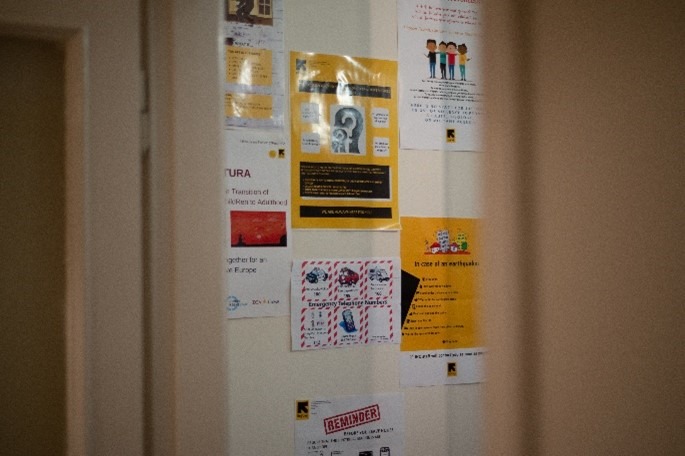Anna Maria Alexi, Caretaker
Photo credits: Stathis Mamalakis/IRC Hellas
Why do you participate in the program?
My previous experience as a street worker in Athens, working with homeless people and people living in precarious housing conditions, accentuated the significance and need for social housing. To this end, I opted to deepen my experience in different housing models. The FUTURA program, supervised by an interdisciplinary team of professionals, is an alternative program that holistically supports its beneficiaries by providing safe housing, psychosocial services, and proper tailor-made guidance for an independent adult life.
What is the most important outcome you have gained through the program?
The FUTURA program stands against institutionalization and is tailored to meet the needs of each beneficiary and promote agency and self-reliance. Hence, as a Caretaker working daily onsite is demanding yet a source of inspiration, discovering the resistance and resilience they develop.
How are you going to implement the knowledge you gained into the everyday working reality? Are there any challenges? If yes, explain.
Multiple challenges may arise while working on the asylum and migration field. Asylum seekers are often trapped in bureaucracy, dealing with language and cultural barriers, discrimination, and even racism. Resilience is a key to overcoming hindrances and exclusion and adjusting to changes in a sustainable, culturally appropriate, and effective manner.
What is the main challenge for professionals working on the asylum and migration field in Greece nowadays?
The main challenge for people working on the asylum and migration field is dealing with trauma and often continuous re-traumatization of the beneficiaries. We, as professionals on the field, often face physically, mentally, and emotionally overwhelming or unexpected situations. Thus, we always have to develop and adjust the coping strategies of self-care and protection to avoid a possible burnout, which may in turn harm additionally our beneficiaries.
What is the added value of the program?
Supported Independent Living (SIL) apartments constitute an innovative alternative to the traditional institutional models of accommodation for refugees and asylum seekers employing tools and skills provision for independent living with significant results.





